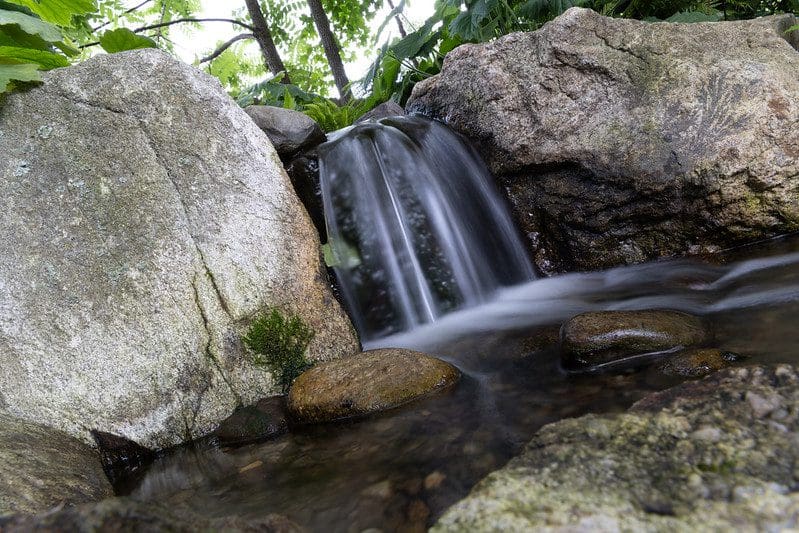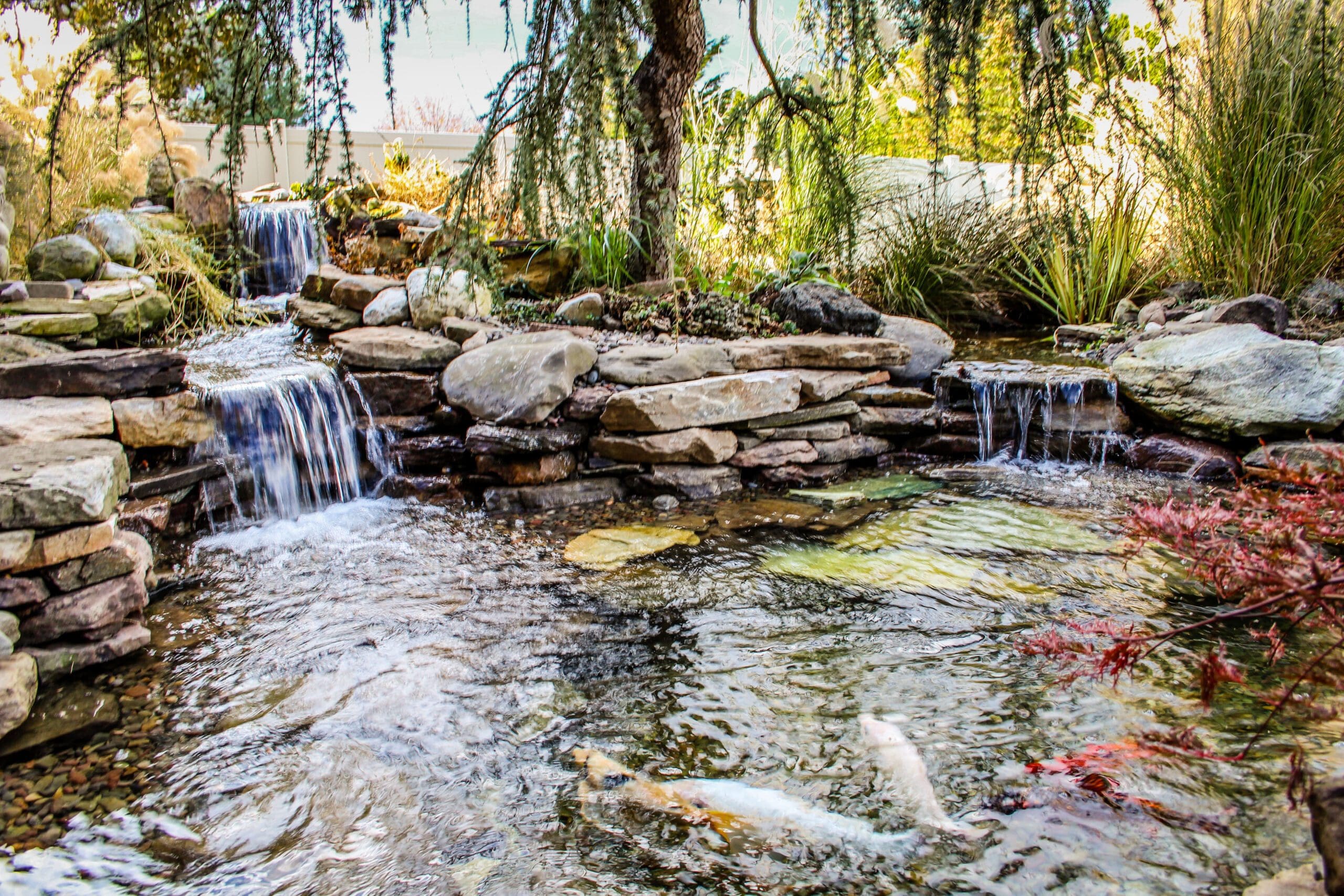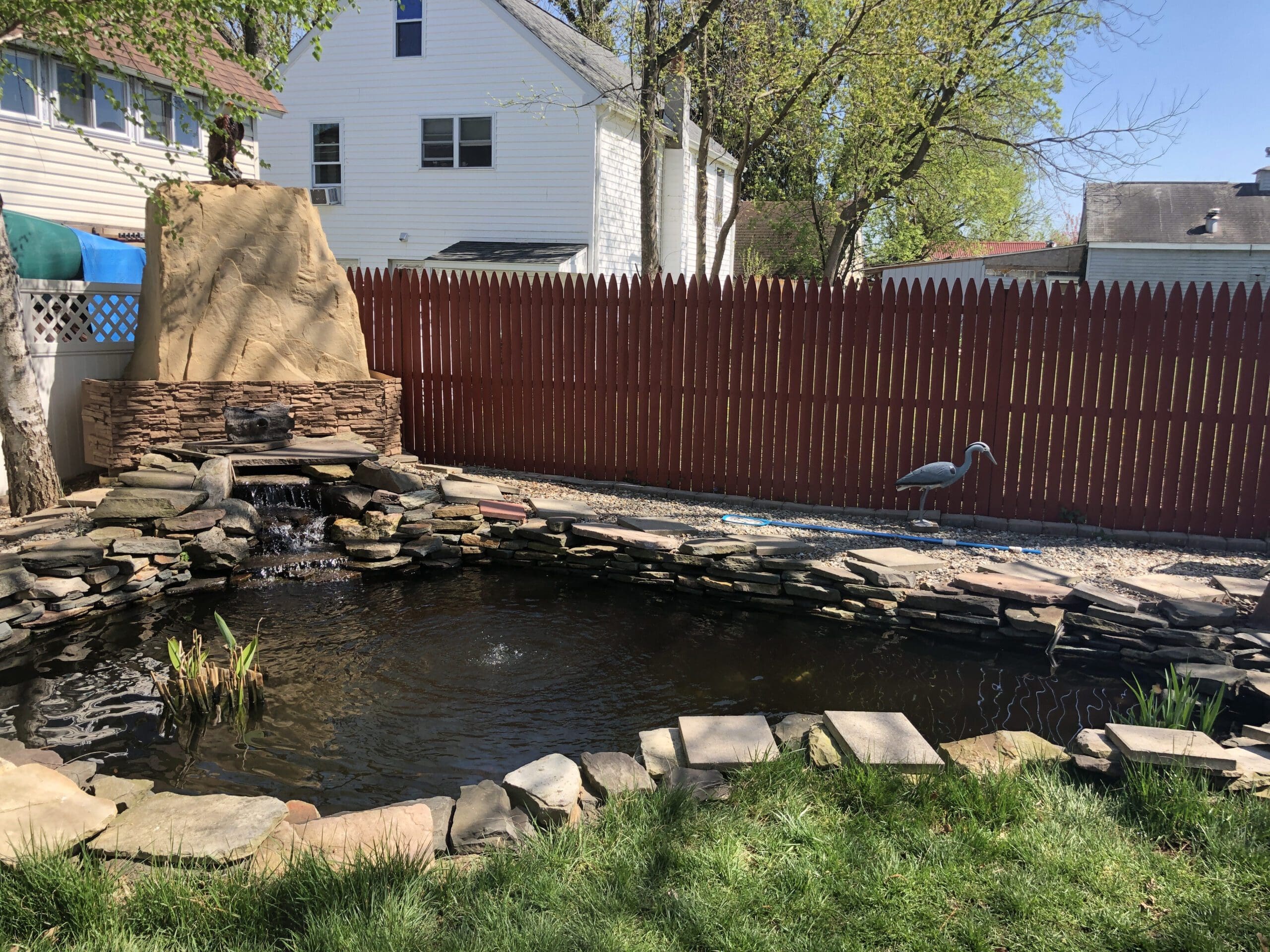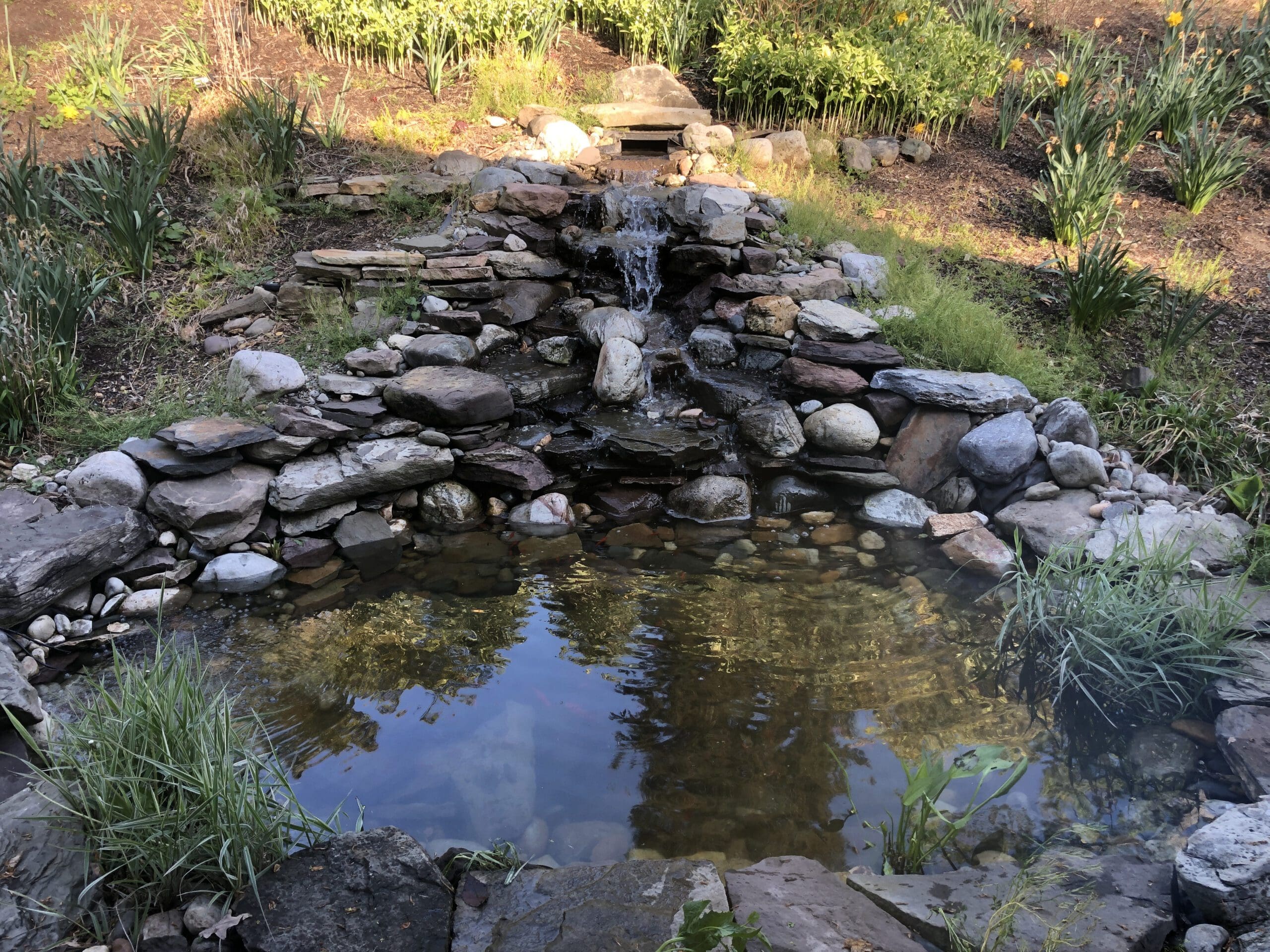Ponds can enhance your property’s beauty and biodiversity, but before you start digging, it’s important to understand the necessary permits. In Pennsylvania, you may need various approvals from local and state authorities to ensure your pond project complies with environmental regulations. From water usage to potential environmental impacts, this guide will help you navigate the permitting process, so you can focus on creating the perfect aquatic oasis. At AquaReale, we take care of all permit applications, ensuring a smooth and hassle-free installation experience for your pond.
Key Takeaways:
- Local Building Permits: Before constructing a pond, homeowners may need to obtain a local building permit from their municipality.
- Environmental Permits: Depending on the pond size and location, environmental permits may be required from state agencies to ensure compliance with water management regulations.
- Water Use Permits: If the pond involves water diversion or drainage from municipal systems, a water use permit might be necessary.
- Dam Safety License: For large ponds that are classified as dams, a dam safety license from the Pennsylvania Department of Environmental Protection could be required.
- AquaReale’s Expertise: AquaReale will handle pulling all necessary permits for your pond project, ensuring a smooth and compliant installation process.
Understanding Permit Requirements
Before launching on the journey of building a pond in Pennsylvania, it’s crucial to have a clear understanding of the necessary permits. Navigating these regulations can be complex, but AquaReale, a leading water feature contractor in the Philadelphia area, has you covered. With over 25 years of experience, we will handle the entire permit process for you, ensuring everything is compliant and hassle-free.
Overview of Pennsylvania Regulations
Requirements for constructing a pond in Pennsylvania may vary depending on your location and the pond’s size. Generally, you’ll need to consider state regulations regarding water quality, wildlife preservation, and erosion controls. Local municipalities may also impose additional requirements, so it’s vital to consult your local zoning office.
Importance of Compliance
Importance of following established permit requirements cannot be overstated. Obtaining the necessary permits ensures that your pond project aligns with local and state regulations, which protects both your investment and the environment.
With proper compliance, you not only avoid potential fines and legal issues but also enhance the longevity and ecological balance of your pond. By trusting AquaReale to manage the permit process, you can focus on creating the serene water feature of your dreams, knowing that all legal obligations are being expertly handled.
Types of Permits Needed
It is necessary to understand the types of permits required for building a pond in Pennsylvania. Navigating the permit process can be complex, but AquaReale will handle all necessary permits for you, ensuring a smooth experience. Below are the main permits you may need:
Types of Permits Description General Land Use Permits Necessary for alterations to land. Water Obstruction and Encroachment Permit Essential for controlling water flow and avoiding floods. Nutrient Management Permit For controlling nutrient runoff from ponds. Local Zoning Permits Regulating land use and zoning restrictions. Specialty Permits Based on unique attributes of the pond.
General Land Use Permits
Any pond construction is likely to affect land use significantly, which is why you need a General Land Use Permit. This permit ensures that your project complies with local land use regulations and zoning ordinances. AquaReale will assist you in obtaining this permit as part of our comprehensive services.
Water Obstruction and Encroachment Permit
Permits for water obstruction and encroachment are crucial if your pond interacts with any waterbodies. This permit helps manage the potential impacts on water flow and quality, ensuring that your pond does not negatively affect the surrounding ecosystem. AquaReale will ensure this permit is in place to protect your interests.
Permits for water obstruction and encroachment are often required if your pond lies near waterways, wetlands, or flood-prone areas. The process includes detailed surveys and assessments of the potential impact on water flow and quality, which AquaReale can manage efficiently. With our expertise, you can rest assured that all necessary precautions will be taken to comply with state regulations.
Nutrient Management Permit
Any pond that will use fertilizers or chemicals needs a Nutrient Management Permit to manage runoff and protect water quality. This permit is aimed at minimizing nutrient pollution to local waterways. AquaReale will guide you through this permitting process to ensure compliance with environmental standards.
General nutrient management practices become crucial for maintaining water quality in your pond. The Nutrient Management Permit addresses potential sources of pollution, such as runoff from fertilizers. AquaReale’s experienced team will ensure that all practices meet state and federal regulations, promoting a healthy ecosystem in your pond.
Local Zoning Permits
Zoning permits are necessary to ensure your pond construction aligns with local zoning laws. These regulations can affect the size, location, and design of your pond. AquaReale will assist you in acquiring the needed zoning permits, simplifying the process for you.
The importance of local zoning permits cannot be overstated, as they directly affect your ability to construct a pond legally. These permits focus on various factors such as setback requirements and land use restrictions. AquaReale is well-equipped to navigate these regulations, ensuring that your project adheres to all local laws and that any modifications are compliant from the get-go.
Any project involving pond construction in Pennsylvania will require navigation through multiple permits. AquaReale is here to assist you with this process, ensuring a hassle-free experience as we install, renovate, or maintain your pond and water features throughout the Delaware Valley.
Environmental Considerations
Keep in mind that when planning to build a pond in Pennsylvania, understanding the environmental considerations is crucial. These factors ensure that your pond does not negatively impact the local ecosystem while also complying with regulations. Proper planning and consultation with experts can help you create a sustainable water feature that enhances the natural beauty of your property.
Impact on Local Ecosystems
Ecosystems around your property play a vital role in maintaining biodiversity. When building a pond, it is vital to consider how it will affect local flora and fauna. A well-designed pond can attract beneficial wildlife such as birds and beneficial insects, but if not managed correctly, it may disrupt existing habitats. Engaging with professionals like AquaReale ensures that your project promotes a healthy ecosystem.
Wetland Delineation
On your journey to creating the perfect pond, understanding wetland delineation is crucial. This process involves identifying and mapping wetlands on your property to ensure that you comply with state and federal regulations. Wetlands provide important ecological benefits and may require special permits to alter.
Wetland delineation is vital because it helps you recognize areas that are protected by law. In Pennsylvania, if your planned pond site overlaps with designated wetlands, you’ll need to take special precautions and possibly alter your designs. Engaging with AquaReale means that you can trust us to handle all the necessary permits and regulatory requirements for your pond installation, ensuring a smooth and compliant process while creating a beautiful water feature for your home.
Steps to Obtain Permits
Unlike many other home improvement projects, building a pond in Pennsylvania requires specific permits to ensure compliance with local regulations and environmental protections. This process can seem daunting, but breaking it down into manageable steps will help you navigate it successfully.
Initial Research and Planning
Obtain a clear understanding of the regulations in your area. Before you look into the permit application process, it’s crucial to research local zoning laws, environmental regulations, and any potential restrictions that might affect your pond project. This groundwork is necessary to avoid complications later on.
Application Process Overview
Research the types of permits required for building your pond, including any necessary environmental assessments, and gather the required documentation. Each local authority may have specific forms and guidelines that must be adhered to. Familiarize yourself with these requirements so that you can prepare effectively.
It’s important to note that the application process involves submitting your project plans and supporting documents to the appropriate regulatory agencies. You’ll need to provide details such as the pond size, depth, intended use, and any potential environmental impact. Depending on your project’s complexity, this step can vary in duration and requirements.
Reviewing and Submitting Proposals
For the successful submission of your proposal, you must ensure all documentation is complete and accurately reflects your planned project. This may include diagrams, site plans, and any environmental consideration assessments required by your local authorities.
Understanding the reviewing phase is crucial as it will often involve a waiting period during which local officials assess your proposal for compliance with zoning laws and environmental impacts. Be prepared to respond to any requests for additional information or changes that may arise during this review process. Your promptness can significantly impact the speed of approval.
At AquaReale, we understand the ins and outs of obtaining permits for pond construction and can handle all the necessary steps to ensure compliance, allowing you to focus on bringing your water feature vision to life.
The Role of Professional Contractors
Despite the allure of a serene pond or water feature in your backyard, navigating the complexities of permitting can be daunting. Hiring a professional contractor like AquaReale alleviates this burden, ensuring that your project complies with local regulations and standards while enhancing the overall design and execution of your vision.
Benefits of Hiring a Water Feature Contractor
On your journey to creating the perfect pond, partnering with a water feature contractor offers invaluable expertise and peace of mind. Professionals not only have experience in design and installation but also understand the permitting process, which can save you time and avoid potential setbacks.
How AquaReale Facilitates Permit Acquisition
The process of obtaining the necessary permits can be overwhelming, but AquaReale simplifies this for you. Our team handles all aspects of permit acquisition, making sure you meet local regulations while allowing you to focus on enjoying your new water feature.
This commitment to excellence and service means you won’t have to navigate the bureaucratic maze alone. AquaReale has over 25 years of experience working in the Philadelphia area and is well-versed in the specific requirements across the five counties we serve: Bucks, Delaware, Chester, Montgomery, and Philadelphia, as well as South Jersey. By taking care of all necessary permits, we ensure your project proceeds smoothly, letting you immerse yourself in the beauty of your newly constructed pond without a hitch.
Common Challenges in the Permitting Process
Many property owners often underestimate the complexities involved in obtaining permits for building a pond in Pennsylvania. Navigating the regulatory landscape can be daunting, especially when local and state guidelines must be adhered to. Understanding these challenges is crucial to ensure your project goes smoothly and is up to code.
Denial of Permits
Denial of permits can happen for a variety of reasons, including insufficient documentation or failure to meet environmental regulations. If your application lacks necessary details or does not comply with local zoning laws, it can lead to your permit being revoked. As a leading professional water feature contractor in Philadelphia, AquaReale ensures that all required documents are prepared accurately to minimize this risk.
Delays and Complications
One of the most frustrating aspects of the permitting process can be delays and complications that arise unexpectedly. These can stem from various factors, including the need for additional environmental assessments or community approvals.
For instance, if your proposed pond location is near protected waterways or sensitive wildlife habitats, the permitting authority might require further studies to evaluate the potential impact. This can significantly extend the time it takes to get your application approved. By choosing AquaReale, you can rest assured that we will handle all the necessary permits and address any potential challenges efficiently, allowing you to focus on enjoying your new pond. With over 25 years of experience in the Delaware Valley, we’re equipped to navigate these complexities on your behalf.
Summing Up
On the whole, when you’re considering building a pond in Pennsylvania, it’s crucial to understand the necessary permits. Depending on your project’s scope, you may need a general earth disturbance permit, a water obstruction and encroachment permit, or local zoning approvals. AquaReale is here to simplify the process for you, ensuring that all required permits are pulled effectively, so you can focus on enjoying your new water feature without worry.
FAQ
Q: What permits are required for building a pond in Pennsylvania?
A: In Pennsylvania, building a pond typically requires a few permits, depending on the size and location of the pond. You’ll often need a General Permit for encroachments, especially if the pond is located near wetlands or waterways. Additionally, an Environmental Protection Permit may be necessary if the pond is intended for stormwater management or alters drainage patterns. AquaReale will handle all the necessary permitting processes to ensure your pond construction complies with state and local regulations.
Q: Do I need to notify my local municipality or homeowners’ association before building a pond?
A: Yes, it is advisable to notify your local municipality and, if applicable, your homeowners’ association (HOA) before starting pond construction. Some municipalities have specific zoning laws and regulations that govern water features on residential properties. AquaReale will assist in ensuring you meet all local requirements and properly notify necessary entities.
Q: Are there specific environmental regulations I need to be aware of when constructing a pond?
A: Yes, in Pennsylvania, there are environmental regulations that you may need to consider, particularly if your pond affects local waterways, wetlands, or wildlife habitats. The Pennsylvania Department of Environmental Protection (DEP) oversees many of these regulations. AquaReale is knowledgeable about these requirements and will guide you through the process of securing the appropriate permits.
Q: Can I build a pond on my property without a permit?
A: Building a pond without the necessary permits is not advisable and may lead to legal issues or fines. If your pond exceeds specific size limits or affects watercourses, you will likely need a permit. Consult with AquaReale to understand the exact permit requirements for your project just to be safe.
Q: How does AquaReale assist with the permitting process for pond construction?
A: AquaReale simplifies the pond construction process by managing the entire permitting process for you. We will research and obtain all necessary local, county, and state permits required for your project, ensuring compliance with all regulations. Our experience in the Delaware Valley gives us the expertise needed to navigate these requirements efficiently.






